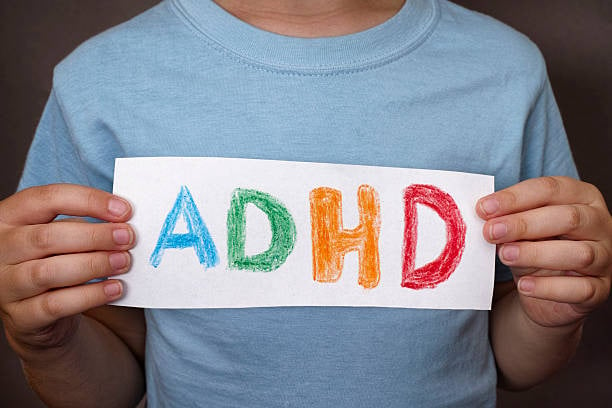
ADHD: The Pros and Cons of Medication
The website ADHD UK states that “a research survey of 10,438 children between the ages of 5 and 15 years found that 3.62% of boys and 0.85% of girls had
Children are naturally active, especially at a young age. Running in the park, jumping on the trampoline and climbing trees are all considered as usual behaviours which should be welcomed to develop a child’s overall development. However, in some cases, the degree of activity may be considered as outside of the norm and can compromise a child’s ability to focus or concentrate, attend to or process information, follow instructions, make or maintain friendships or organise themselves and their environment. At this stage, it is common for parents or teachers to wonder whether the child has the neurological condition called ADHD.
ADHD is thought to affect 5.3% of the global population and studies suggest that it is on the rise in UK schools. Whereas it was previously thought that children grow out of ADHD, research suggests that 30-60% of people continue to experience significant symptoms well into adulthood. This can be more prevalent when children do not receive the specialist provision that they deserve. Unfortunately, recent news reports suggest that children with ADHD are not accessing this vital support. This is worrying, especially as approximately 60-80% of children also experience other conditions for example social communication disorder, language delay, autism, dyslexia or dyspraxia.
Having a child with ADHD can be incredibly challenging. Their behaviour may be seen by others as erratic and inappropriate, which can cause parents a lot of distress and frustration, especially when it seems like the society just doesn’t understand what you and your child are going through. You might be wondering how fine the line is between typically children and those with ADHD. Well, in some cases it’s very fine indeed but below are some pointers and how you can help.
Whereas every child is different and their symptoms of ADHD may manifest in different ways, here are some questions to ask yourself if you think your child may have ADHD:
"SENsational Tutors is a brilliant company to contact if you have a child or young adult with SEN or additional needs, such as dyslexia, ADHD, autism, dyspraxia, that needs support from highly experienced SEN tutors. Truly recommended!"
Concetta, London


If you are noticing that your child is presenting with some or all of the symptoms above, one of the first things you can do is to talk to your school’s SENCo, if available. They may be able to shed some light on whether they are observing the same behaviours at school.
Speak to your local CAMHS (Child and Adolescent Mental Health Services) here. Referrals are usually made by parents, teachers or the GP, and this may be a small stepping-stone to receiving the support that your child with ADHD deserves.
Many parents wonder whether medication will help their child with ADHD. It’s certainly a hot topic and some parents report that is has made a profound difference. Others, however, prefer to consider specialist interventions and strategies to help regulate their child with ADHD’s behaviour. Medication for children with ADHD is a personal preference, and the pros and cons should be considered very carefully. Whilst some believe that it’s essential and welcomed, for others it’s a last resort.
Especially useful for teenagers and adults, Stephanie Camilleri, the ‘ADHD advocate’ offers personalised online coaching to provide useful strategies and interventions to those with ADHD. As a person with ADHD herself, she really does have first-hand knowledge of how to support you. Soli, ‘The Yellow Sun’ runs a very active Facebook and support group. She is certainly worth speaking to if you are interested in having a network of supportive and understanding people around you, all whom are experiencing similar challenges.
Multi-sensory, hands-on and active learning works best for many children. Try to be creative at any age and use what you have at home to make learning and homework fun. How about converting your trampoline into a ‘Terrific Times-tables Trampoline’ like a SENsational Tutor did with one of their students.
Would your child with ADHD or ADD benefit from:
Tutors can support children and young people to develop executive functioning skills, including: planning, preparation, organisation, time-management and initiation (how to start projects). These skills are important in daily life, e.g for being able to get ready for school on time, but also when working towards exams.
Tutors aim to ensure that sessions are multi-sensory, dynamic and engaging. This means that during a session, you may see your child jumping on a trampoline whilst reciting their times tables, or singing along to their favourite song to develop their speech and confidence. No doubt your child will also have a smile on their face too! We believe that having fun whilst learning is key.
To ensure new skills are transferred into real situations, we believe that children with ADHD or ADD benefit from understanding the relevance, outcome and potential positive impact of what they learning. This may mean that you will see your child completing a science experiment or writing a letter to the prime minister to develop their persuasive writing skills about saying the rainforest. We think that keeping learning real and alive is important to help your child stay engaged and focused, as well as to retain new skills.
The tutors’ personal approach enables them to create a programme for your child with ADHD/ADD which considers how your child may learn best. In the past, sessions have been based around a love of trains, Minecraft, unicorns, gymnastics and football. The aim is to deliver a highly personalised learning session to inspire and fully engage your child.
An outstanding company dedicated to matching students with highly specialist tutors perfectly suited to their individual special needs, including dyslexia, autism spectrum conditions and ADHD. Friendly service, great communication and highly professional, would recommend!
Megan, London
We understand that learning environments for some children with ADHD or ADD can be incredibly challenging. When it comes to finding the right support for your child, finding someone who understands and has experience with working with children and young adults with ADHD or ADD is vital. Many specialist SENsational Tutors have experience working with children with ADHD or ADD. They recognise individual strengths, are creative and make learning fun!
A SENsational Tutor can develop an understanding of your child’s requirements – academic, behaviour, language and communication, and sensory – and provide 1:1 sessions which are individually planned with their personal needs in mind. You will see your child smiling and laughing whilst they learn!

Julia is a qualified teacher with experience teaching students with Attention Deficit Hyperactivity Disorder (ADHD), ASC and speech and language needs.
She explains some of the specialist ADHD/ ADD strategies she uses in her sessions:
“I provide an individual working space with minimal distractions as needed, clear visual timetables and now and next boards to support children’s focus and use of praise and reward systems. I also ensure that I tailor instructions to children’s communication needs and give them time to fully process instructions and ask any questions they need to before beginning the task as well as ensuring I check in as needed throughout the task.
In addition, I make sure that tasks are suitable for children’s needs and often use technology to support children in completing these. I always make sure that I build in movement breaks throughout the learning and break learning down into manageable chunks with breaks as needed after each section. I also make sure that sessions are tailored to children’s interests to encourage maintained levels of focus.”
To find out more about Julia or to book her for a teaching session with your child or young adult with ADHD or ADD, please read her full profile:

The website ADHD UK states that “a research survey of 10,438 children between the ages of 5 and 15 years found that 3.62% of boys and 0.85% of girls had

Statistics from the website “ADHD UK” estimate that there are 708,000 children living in the UK with ADHD (Attention Deficit Hyperactivity Disorder). Children with the condition may typically display some

When we mask, we camouflage and present a different reality to the world. The neurotypical population may mask to ease their nerves on their first day at school or adapt
Showing our latest reviews
Subscribe for free to receive regular updates about how to help your child with SEN/SEND
SENsational private tutors specialise in assisting children with Autism, ADD/ADHD, Dyslexia and other Special Education Needs (SEN).


Mulit-award winning. Winner of the UK’s People’s Choice, Tuition Agency of the Year 2023 & 2024.